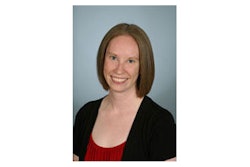MADISON, Wis. (AP) — A Wisconsin Assembly committee approved a bill on Tuesday that would limit the amount of food stamp benefits that could be spent on junk food.
Republican Rep. Dean Kaufert, of Neenah, amended his original bill to require people enrolled in the state nutrition assistance program, known as FoodShare or food stamps, to spend at least two-thirds of their monthly benefits on items such as milk, bread and vegetables. They could spend their remaining benefits on any authorized food.
Kaufert told members of the State Affairs Committee he often heard complaints that food stamp users were buying large volumes of chips and soda. He said he simply wants people to use their benefits to eat healthier.
"I don't want to ban Nachos or Doritos from anyone's grandson because my grandson eats it," Kaufert said. "But the fact is, reasonable limitation is not asking for too much."
Currently, FoodShare uses federal money to help low-income individuals and families buy almost any food but not alcohol, cigarettes or restaurant meals. About 15 percent of Wisconsin's population, or 858,000 people, got such benefits in March.
Kaufert's proposal would require a majority of benefits to be used on products already approved for the Special Supplemental Nutrition Program for Women, Infants, and Children, as well as beef, pork, chicken, fish, or vegetables that are not on the list.
The original version of the proposal didn't specify an amount to be spent on non-junk foods. The committee had delayed the vote after representatives from food companies, grocery stores and food banks told Wisconsin lawmakers that restrictions would shame recipients and burden businesses with enforcement.
The proposal also drew criticism from Democrats on the committee who said it will stigmatize poor people who already have limited options in buying food.
Rep. JoCasta Zamarripa, a Milwaukee Democrat, called the proposal "press release politics" that would divide Wisconsinites. She said half of food stamp recipients in Wisconsin are only in the program for about a year.
The proposal would require the state Department of Health Services, which administers FoodShare in Wisconsin, to implement the new purchasing guidelines and issue a new benefit card to track what people buy.
To do so, the DHS has to get a federal waiver from the U.S. Department of Agriculture, which has been reluctant to grant similar requests. It denied Minnesota's request for a waiver in 2004 to prohibit purchase of candy or soda, as well as New York City's 2010 request to ban purchase of certain sugary drinks.
USDA has said there are no clear standards in defining foods as healthy or unhealthy, and trying to restrict food purchases would be too expensive and difficult since many new products are introduced each year.
Eight states introduced legislation last year to limit what types of food can be purchases; none passed it, according to the National Conference of State Legislature. Currently, six states are introducing similar proposals.
The measure passed 7-2 Tuesday on a party line vote. The full Assembly will take it up in May.





















